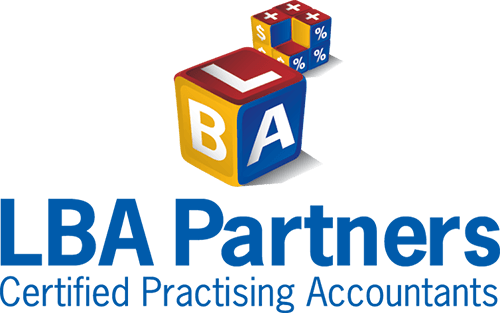Here's our latest newsletter, if you would like to follow up any of the information please contact Linda or Grahame
P r a c t i c e U p d a t e
June 2014
ATO's Tax Amnesty – They offer an "Invitation to
come in from the cold"
Editor: Last month we reported that the ATO had announced its "Project DO IT" – an amnesty for taxpayers with offshore assets or income to voluntarily come clean by 19 December 2014.
Greg Williams, Deputy Commissioner, Serious Non-Compliance, says that: "Sometimes people commit tax crime inadvertently."
"It may be as a result of inheriting unreported offshore accounts from relatives; it may be they have become involved without fully understanding that their arrangement is illegal; or it may simply be that they trusted people who gave them bad advice."
That, he says, is why the ATO wants to help these types of taxpayers fix their tax affairs and has announced the Project DO IT initiative*.
Editor: That said, taxpayers who are eligible to enter the program should seek advice – depending on the circumstances and the sums involved, possibly even consult a tax barrister.
The reason we say this is that the ATO is not, in fact, making an offer to taxpayers for them to accept. In truth, the shoe is very much on the other foot.
Taxpayers are encouraged to come forward, but it is the ATO who will decide whether they accept any advance or not. We are concerned that this may leave some taxpayers stranded with nowhere to go after baring their soul to the taxman.
Family Court documents opened up to Tax Office
In a recent and possibly disturbing case for many taxpayers, the ATO has been able to gain access to family court documents in relation to a taxpayer who was already under investigation.
Facts
A husband and wife were parties to proceedings in the Family Court of Australia which were dismissed by consent in December 2010.
The dismissal occurred after the ATO had started an audit of the husband and his related entities in June 2009 in relation to the 1991 to 2010 income years.
In November 2009, the ATO wrote to the Court seeking access to documents in "a current proceeding" and subsequently requested access to certain affidavits, financial statements, subpoenas and other documents.
After much to-ing and fro-ing, the matter came before the Full Court of the Family Court which decided in the ATO's favour.
Decision
Basically, the Court decided in favour of the ATO because:
- it was engaged in a substantial, targeted audit – not a "random audit"; and
- without the documents, the history and details of assets that had been acquired, many outside Australia, would only be available in the unlikely event that the taxpayers co-operated with the audit.
ATO keen for taxpayers to avoid tax-related scams
The ATO is concerned about the number and frequency of email and mobile phone scams that are occurring.
These scams claim to come from the ATO and usually offer a tax refund. Generally, they link to a bogus ATO website asking for personal information and credit card details.
The ATO advises that while it may email, SMS message or phone taxpayers, it will never ask for:
- personal details, such as driver's licence, mother's maiden name; or
- credit card, including CVN, or bank details.
Where this happens, they advise that taxpayers should not progress with the email, SMS or phone call. If a taxpayer is in doubt about the authenticity of a call that they receive from the ATO, they should contact the ATO on one of its publicly listed numbers to verify the legitimacy of the call.
Repairs to a rental property formerly used as a home
In recent years, there has been an increasing tendency for home owners to use an existing home as a rental property, especially where a new home has been purchased.
In these situations, it is common for taxpayers to undertake repairs and maintenance to their existing home in order to make it more attractive to prospective tenants before the property is available for rent and/or actually rented to tenants.
However, according to the ATO, no deduction will be available for repair expenditure that is incurred before a taxpayer's home is held or used for income-earning purposes (e.g., before the property is genuinely available for rental).
Undertake repairs when property is available for rent
Where appropriate, a taxpayer should consider 'holding-off' undertaking repairs to the former home until the property is either genuinely available for rent (e.g., listed with a real estate agent for rental) or actually rented to tenants.
In these circumstances, a deduction for repairs may be available even though:
- the property was previously used by the taxpayer for private purposes (i.e., as the taxpayer's home); and
- some or all of the defects, damage, or deterioration are attributable to the period the property was used as the taxpayer's home.
Gov't to effectively get rid of super excess contributions tax
In the May Budget, the government stated it will introduce legislation to ensure that inadvertent breaches of the non-concessional contributions cap, that are reversed, will not incur a penalty.
For any excess contributions made after 1 July 2013 that breach the non-concessional cap (currently $150,000), individuals will be allowed to withdraw those excess contributions and associated earnings.
If a taxpayer chooses this option, no excess contributions tax will be payable and any related earnings will be taxed at the individual's marginal tax rate.
Anyone who leaves their excess contributions in the fund will continue to be taxed on these contributions at the top marginal rate.
Car parking can be classed as "meal entertainment"
Many employers choose the 50/50 split method to value their meal entertainment benefits for FBT purposes.
However, many may not be aware that the minor benefit exemption, for benefits which are infrequent and less than $300, is not available where this method is used.
Take, for example, the case of an employee who parks their car at a venue for a work function at which the employer provides food and drink.
If the employer is using the 50/50 method and reimburses the car parking fee, it will be added into the employer's meal entertainment expenses for FBT purposes (i.e., it won't be fully exempt).
Car parking threshold 2014/15
The car parking threshold for the 2014/15 FBT year is $8.26. This replaces the amount of $8.03 that applied in the 2013/14 year.
Year End Checklists
As usual we have prepared end of year checklists to help you get your information together ready for tax time. They can be accessed via the links below or they can be found under the Resources tab on our website.
Please Note: Many of the comments in this publication are general in nature and anyone intending to apply the information to practical circumstances should seek professional advice to independently verify their interpretation and the information's applicability to their particular circumstances.
Management Consulting
We have the know-how and experience to offer advice that helps you run your business more effectively.
Self-Managed Superannuation Funds
At LBA Partners we provide the professional advice you need to manage your own fund and greatly simplify the process for you.



